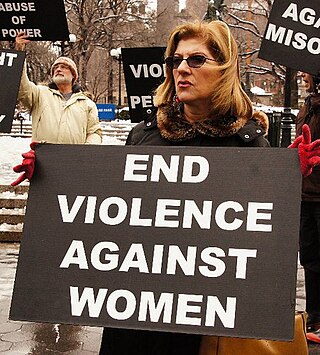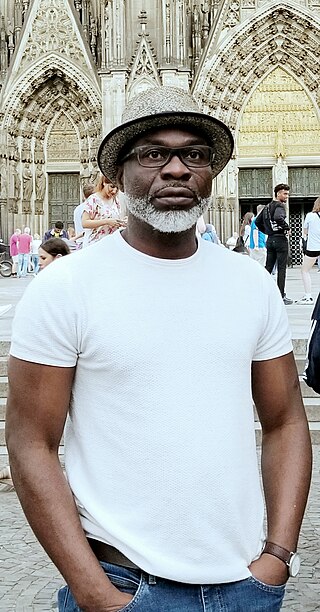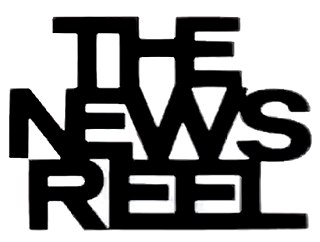
A newsreel is a form of short documentary film, containing news stories and items of topical interest, that was prevalent between the 1910s and the mid 1970s. Typically presented in a cinema, newsreels were a source of current affairs, information, and entertainment for millions of moviegoers. Newsreels were typically exhibited preceding a feature film, but there were also dedicated newsreel theaters in many major cities in the 1930s and ’40s, and some large city cinemas also included a smaller theaterette where newsreels were screened continuously throughout the day.
The Global Policy Forum (GPF) is an international non-governmental organization founded in December 1993 and based in New York and Bonn .[1] The aim of the Global Policy Forum is to critically accompany and analyze developments in the United Nations and on the topic of global governance. Thereby a bridge between the international and the local level is to be built. GPF seeks to strengthen intergovernmental organizations and promote multilateralism based on solidarity, international law and the United Nations Charter. The Global Policy Forum also has consultative status on the United Nations Economic and Social Council. Jens Martens has been the GPF's executive director since 2014 and director of GPF Europe since its foundation in 2004.[2]

Paramount News was a newsreel series that was produced by Paramount Pictures from 1927 to 1957.
California Newsreel is an American non-profit, social justice film distribution and production company based in San Francisco, California. It was founded in 1968 as the San Francisco branch of the national filmmaking collective Newsreel. Their educational media resources include both documentary and feature films, with a focus on the advancement of racial justice and diversity, and the study of African American life and history, as well as African culture and politics. In 2006, Newsreel launched a new thematic focus for their work: Globalization, with an emphasis on the global economy and the international division of labour. Several of California Newsreels' films have been broadcast on PBS.
DIVA TV was a gay and lesbian video activist collective founded in New York City in 1989. The name was an acronym for "Damned Interfering Video Activist Television". Founding members include: Bob Beck, Gregg Bordowitz, Jean Carlomusto, Rob Kurilla, Ray Navarro, Costa Pappas, George Plagianos, Catherine Saalfield, and Ellen Spiro.
Norman Fruchter was an American writer, filmmaker, and academic.
Celine Parreñas Shimizu is a filmmaker and film scholar. She is well known for her work on race, sexuality and representations. She is currently Dean of the Arts Division at the University of California at Santa Cruz.

Tami Kashia Gold is a documentary filmmaker, visual artist and educator. She is also a professor at Hunter College of the City University of New York in the Department of Film and Media Studies.

Christine Choy is a Chinese-American filmmaker. She is known for co-directing Who Killed Vincent Chin?, a 1988 film based on the murder of Vincent Jen Chin, for which she was nominated for an Academy Award. She co-founded Third World Newsreel, a film company focusing on people of color and social justice issues. As a documentary filmmaker, she has produced and directed more than eighty films. She is a professor at New York University's Tisch School of the Arts.
Queen Melé Le'iato Tuiasosopo Muhammad Ali is an American filmmaker, composer, social activist and visual anthropologist. Queen and her husband Hakeem Khaaliq founded Nation19, a magazine and film production company, and she is the director of the Manuia Samoa, a social wellness hub in American Samoa.
Seyi Adebanjo is a genderfluid, queer MFA media artist, born in Nigeria and now resident in New York City. Adebanjo's work aims to generate social awareness about issues of race, gender, and sexuality through the use of multimedia photography, film, digital video, and writings.
Peter Kuttner is a Chicago filmmaker, activist, and cameraman. He is known for his early socially-conscious documentary films that touch on topics such as opposition to United States involvement in the Vietnam War, gentrification of Chicago, racism, and social class. He produced many of these with the film collective Kartemquin Films, of which he was an original member. He is best known for his work on the film The End of the Nightstick (1993) with Cindi Moran and Eric Scholl, which documented police brutality in Chicago and torture allegations against commander Jon Burge. Kuttner has worked extensively in activism and community service, and was a founding member of activist group Rising Up Angry. Kuttner has worked with many collaborators including Kartemquin Collective founder Gordon Quinn, and filmmakers Haskell Wexler and Robert Kramer. He is also known for camera work on a number of major motion pictures including Man of Steel and Source Code.

Bev Grant is an American musician, photographer, filmmaker, and activist based in New York City.
The Women Outside: Korean Women and the U.S. Military is a 60 minute 1995 documentary film created by film/video makers Hye Jung Park and J.T. Takagi. The film details the experiences of South Korean women who work in U.S. military camptown brothels, bars, or clubs, exposing how the South Korean government and U.S. military mutually benefit from the sexual exploitation of women.

Idrissou Mora-Kpai, is a Beninese-American filmmaker. He is most notable as the director of critically acclaimed films Indochina Traces of a Mother, Arlit The Second Paris, and Si-Gueriki The Queen Mother. He is a recipient of the John Simon Guggenheim Memorial Foundation Fellowship and the Dutch Prince Claus Award

The Embassy Theatre, also known as the Embassy 1 Theatre, is a former movie theater at 1560 Broadway, along Times Square, in the Midtown Manhattan neighborhood of New York City. Designed by Thomas W. Lamb, the theater opened in 1925 on the ground floor of 1560 Broadway, the headquarters of the Actors' Equity Association. While no longer in use as a theater, the space is preserved as a New York City designated landmark, and it continues to operate as a store.

The Newsreel, most frequently called Newsreel, was an American filmmaking collective founded in New York City in late 1967. In keeping with the radical student/youth, antiwar and Black power movements of the time, the group explicitly described its purpose as using "films and other propaganda in aiding the revolutionary movement." The organization quickly established other chapters in San Francisco, Boston, Washington, DC, Atlanta, Detroit, Chicago, Los Angeles and Puerto Rico, and soon claimed "150 full time activists in its 9 regional offices." Co-founder Robert Kramer called for "films that unnerve, that shake people's assumptions…[that] explode like grenades in people’s faces, or open minds like a good can opener." Their film's production logo was a flashing graphic of The Newsreel moving in and out violently in cadence with the staccato sounds of a machine gun. A contemporary issue of Film Quarterly described it as "the cinematic equivalent of Leroi Jones's line 'I want poems that can shoot bullets.'" The films produced by Newsreel soon became regular viewing at leftwing political gatherings during the late 1960s and early 1970s; seen in "parks, church basements, on the walls of buildings, in union halls, even at Woodstock." This history has been largely ignored by film and academic historians causing the academic Nathan Rosenberger to remark: "it is curious that Newsreel only occasionally shows up in historical studies of the decade."
Deborah Shaffer has a 50-year career as a documentary filmmaker.
Susan Robeson is an American author, producer and the granddaughter of Paul Robeson.







